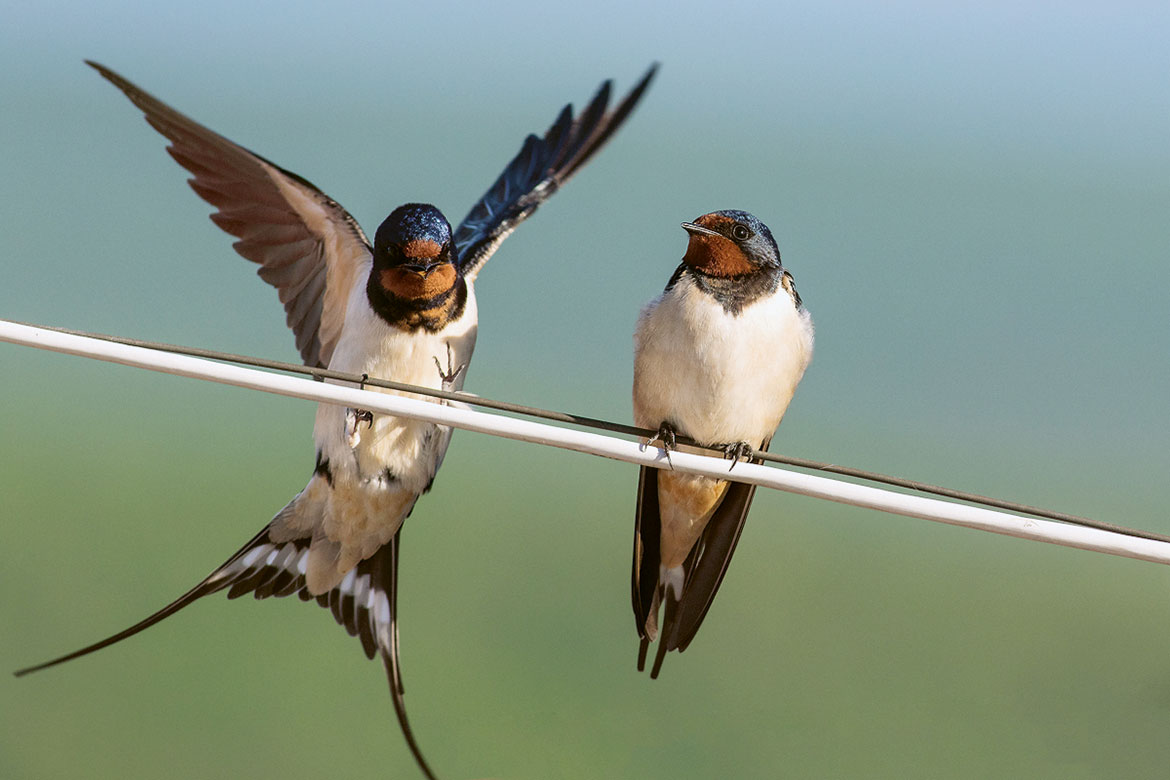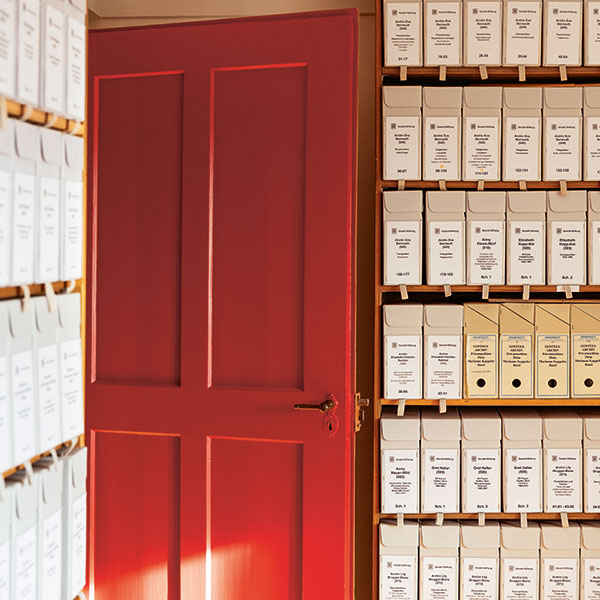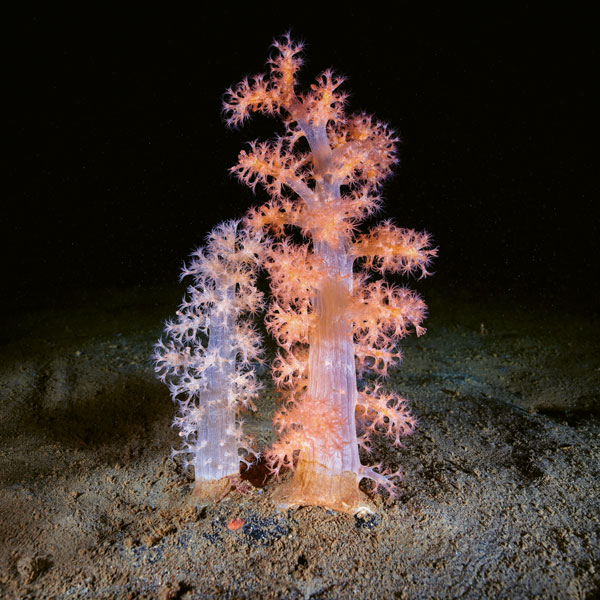Feature: The tourism of the future
“These days, we’re more interested in experiences than in things”
Breaking out of our everyday grind, being able to tell others about it, creating memories – tourism researcher Julia Beelitz explains why many people wouldn’t like to miss out on faraway holidays. And why there’s no such thing as sustainable tourism.

According to tourism researcher Julia Beelitz, participating in tourism isn’t a human right any more than participating in the market for buying Ferraris. | Photo: Sebastian Wolf
Julia Beelitz, what would we miss if we couldn’t go on holiday?
If you’ve not been somewhere yourself, you’ve never really been there. Travel reports by others can’t replace that. Experiencing foreign places is the greatest asset that tourism offers, and it harbours potential for promoting international understanding. And travelling is naturally also a huge economic factor. According to the World Tourism Organisation UNWTO, one in ten jobs across the world was linked to tourism in the year 2019.
In your current book ‘The Philosophy of Tourism’, you suggest that to lead a good life we have to educate ourselves – such as through contact with foreign places and people – but that we also need a means of relief from stress. Tourism can fulfil both of these requirements, you say.
Precisely. And I find the term ‘relief’ far more appropriate than, say, ‘recreation’. The fact is that travellers sometimes arrive home from a holiday more exhausted than they were before they went. This can have a positive cause – perhaps they’ve come back with a host of new impressions – but it can also be due to delayed flights or because a family member has fallen ill. Holidays nevertheless usually lead to a form of relief – such as from the time constraints of our everyday lives. Just think of the resorts where there’s always food available, 24 hours a day. You might ask yourself why anyone would need that – but it means that holidaymakers can do whatever they want for two whole weeks. Or a holiday might mean a temporary escape from routine. On group trips, people adopt a certain role in a very short space of time. Perhaps a manager who otherwise always bears all the responsibility will become the class clown.
Tourism ties in with other basic needs, such as freedom of movement. Should it become a human right for this reason?
I wouldn’t mix these things up. When North Korea refuses to allow one of its citizens to leave the country, then it’s clear that their human rights are being restricted. But participation in tourism – in other words, in a business system – is a ‘right’ that you can put to the back of the queue. Otherwise there’d also have to be a human right saying everyone has to be able to participate in the market for buying Ferraris. But there are other developments in a similar direction all the same. In Germany, for example, mothers and fathers can apply to their health insurance provider for so-called mother/father/child spa treatments.
So is tourism a luxury?
Yes, though it’s not like most people are willing to give up travelling if they need to save money. They simply go on just one holiday a year, or stop staying in expensive hotels. These days in the developed world, we are more interested in experiences than in things: ‘Collect moments, not things’ is a popular saying on social networks.
If we couldn’t remember our journeys afterwards, would we still go on them? Or if we were forbidden from talking about them?
If we couldn’t keep any memories at all, we’d probably stop travelling. They are the core ‘souvenir’ of the tourism experience. And if we couldn’t share them, travelling would be less attractive for some people at least. People do certain things for reasons of status: After all, not even in the upmarket suburbs has everyone been on Mount Everest. This phenomenon also exists among young people, who often do a year volunteering or backpacking somewhere before starting university. And they love telling each other what it was like to live somewhere else.
After reading the chapters in your book on the ethical aspects of sustainability and fairness, I felt bad. I’m spending a week skiing in the canton of Valais this winter, and in the autumn I’m flying off to see a friend in Brazil.
I always warn my students at the outset of my lectures: get ready for a surfeit of bad news. The fact is that we travel too much in the Western world. Eight to twelve percent of global CO₂ emissions are caused by tourism, with over half due to transport. Every time I get on a plane or into a car, it has a negative impact. There’s no such thing as sustainable tourism. That doesn’t mean that I always have to have a guilty conscience when I travel. But I should always consider how much might be too much.
What can I do in concrete terms?
Don’t travel long-distance three times a year, don’t drive ten hours to a ski resort twice every winter, don’t choose a winter sports resort where they use artificial snow. Certain needs can also be served by using alternatives. Do you really have to go to Thailand just for a beach holiday? But I’ve no intention of banning anything. The sociocultural impact of tourism is also important. It would be truly sad if we couldn’t have those experiences any more.
Certain places ought to be protected by restricting access to them – such as the Antarctic. Why doesn’t this work in practice?
The status issue plays a role again here. People want to be able to say: I was there anyway! Then there’s sheer human curiosity. The more inaccessible an area, the more attractive it becomes. What’s more, if you’re going to ban something, you need concrete institutions and people to monitor things. This is the so-called ‘tragedy of the commons’. Public spaces can only be regulated to a limited extent, and since everyone has access to them, they end up being overused.
And in many of the really popular areas, it’s questionable just how fair things are for the local people.
Basically, the more dependent the locals are on tourism, the less fair it is to them. There’s often a leakage effect: the money spent doesn’t benefit them, but flows abroad instead. Everyone should be aware of this when they book accommodation, and should find out who actually owns it. Online booking is controversial for this reason. It’s easier to market family-run businesses directly online, but they’re also in direct competition with international players who can pay what’s necessary to get a better ranking.
On-site authenticity is also often questionable. For example: I was in the Jordanian desert back in 2022, and we were entertained by Bedouin dances in a tent on the evenings. I experienced the landscape as authentic, but that wasn’t at all the case with the entertainment programme.
Authenticity is perceived as being nobler than something that’s staged. But do tourists really want authenticity? I’d say: only to a very limited degree. They want a failsafe experience that fulfils their expectations. Some real things might scare us, or at the very least disappoint us. There’s another important aspect to this, too: When we invite guests into our home, we want to make a good impression and make sure that they’re happy. So we make something special to eat and we put on nice clothes. Are we really ready to let our guests share in how we actually live? Staging ‘reality’ is a socio-cultural technique that creates a safe haven.
What will tourism look like, 100 years from now?
It’ll have to become more climate-friendly! Alternative power sources such as hydrogen are going to be an issue, and limits are going to be necessary: How many more planes and ships should we be allowed to build? We need to institute a legal cap on them. I’m also certain that the economic success story of tourism will continue. Might I perhaps say what I personally would like to see?
Sure.
I’d like people to reflect more strongly on the issues at hand. What would be the wiser decision when choosing a destination? Would the Almbachklamm in Bavaria – a place that has water and dramatic cliffs – satisfy my need for the beauty of Nature any less than Ko Phi Phi in Thailand? And when tourism providers market a destination, they should at the same time inform us about sustainability issues. I’d like to see value-based tourism.
What’s your next journey going to be?
I’m going to Bad Hindelang in the Allgäu in Bavaria. It’s close to where I live. I’m looking forward to a few days of snow. I’m not a skier, but I’ll go hiking in the snow, eat good food and spend time with my family. I only go on long-distance holidays once every four years. I think that’s justifiable. I also want to see the world. And I also feel called to engage in international management, not just sustainability.




